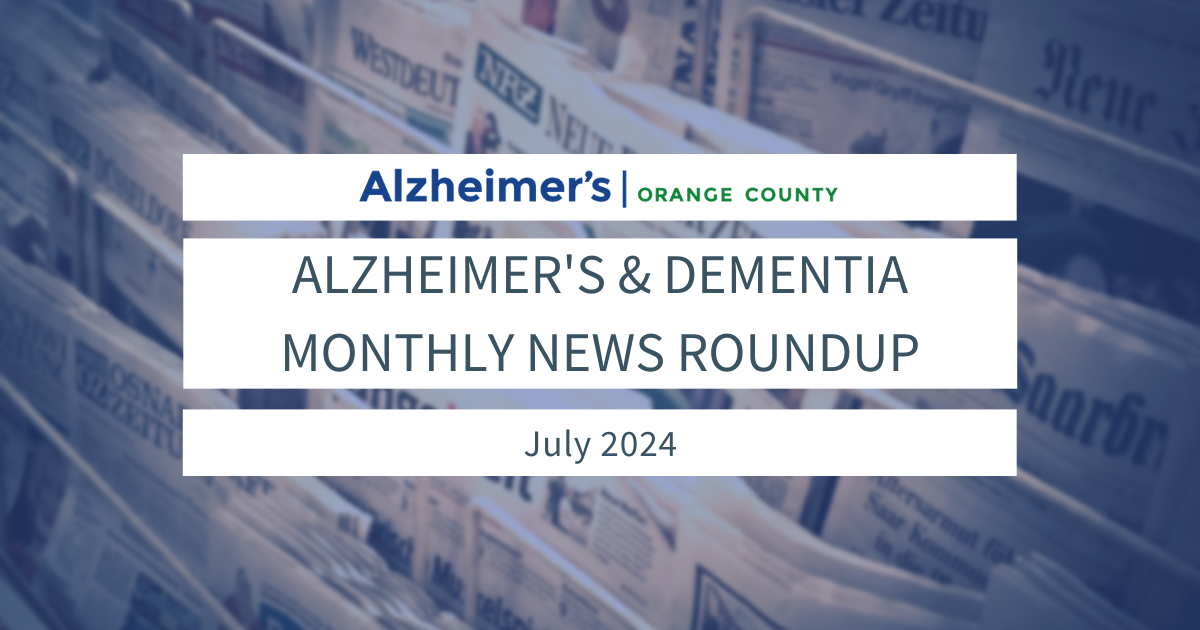A monthly recap of the latest news about Alzheimer’s and dementia
7 Things to Know About New Alzheimer’s Drug Kisunla
A new drug for Alzheimer’s was just this month approved by the FDA for use in the United States, in people in the earliest stages of the disease. Read More.
Blood test accurately diagnosed Alzheimer’s 90% of the time, study finds
Scientists have made another major stride toward the long-sought goal of diagnosing Alzheimer’s disease with a simple blood test. Read More.
Healthy lifestyle linked with better cognitive function in older adults
Maintaining a healthy lifestyle may be associated with better cognitive function in older adults, even for those with signs of dementia in their brains, according to an NIA-funded study. Read More.
Can palliative care consults in hospitals improve end-of-life care?
Having clinicians automatically order palliative care increased consultation rates and expedited consultations for seriously ill hospitalized people but did not decrease length of stay, according to an NIA-funded study. Read More.
Higher cognitive ability in early life linked to lower risk of dementia
General cognitive ability early in life influences later-life risk of cognitive impairment and dementia. Read More.
Gene variant slows form of inherited Alzheimer’s disease
Variations in certain genes can modify the risk of developing Alzheimer’s disease (AD) and other types of dementia. Some of the best understood variants to date are in a gene called APOE. Read More.
Quick test could help reduce dementia care disparities
More than 6 million older adults in the U.S. are living with dementia. But despite how common dementia is, studies suggest that signs of cognitive impairment are often missed by health care providers in busy primary care settings. Read More.
FDA Approves Second Alzheimer’s Drug That Can Modestly Slow Disease
U.S. officials have approved another Alzheimer’s drug that can modestly slow the disease, providing a new option for patients in the early stages of the incurable, memory-destroying ailment. Read More.
Reverse Engineering Dementia With Human Computer Interaction
With many millions of Americans suffering from Alzheimer’s and dementia, cognitive decline is a major issue. The cost of dementia care is a rude awakening for many families, and patients experiencing the troubling symptoms of these difficulties might despair when they hear that there’s really no “cure,” just treatment. Read More.


